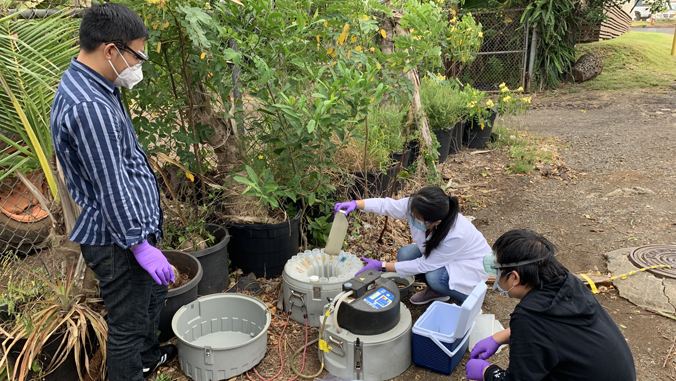
UH Mānoa COVID-19 wastewater surveillance project receives NSF funding

A University of Hawaiʻi at Mānoa COVID-19 research project that aims to discover the community disease burden of COVID-19 through wastewater testing and surveillance, has received National Science Foundation (NSF) funding. Civil and Environmental Engineering Professor Tao Yan received an NSF grant for more than $150,000 for his proposal “RAPID: Determine Community Disease Burden of COVID-19 by Probing Wastewater Microbiome.”
Yan’s research will involve collecting time-sensitive wastewater samples from communities impacted by the disease, with assistance from UH facilities and local wastewater utilities, and developing a highly efficient concentration and detection method that is specifically optimized for the enveloped virus in wastewater. Currently, the team is collecting samples in Mānoa and is working to determine other additional locations.
“The pandemic presents a great challenge to the current clinic-based disease surveillance approach, which provides limited coverage on asymptomatic and mildly symptomatic patients who play a significant role in driving disease transmission and pandemics,” Yan said. “This new wastewater microbiome-based approach promises rapid, sensitive and comprehensive capabilities in microbial disease surveillance. Such capabilities could have significant broad impacts on improving situation awareness and devising intervention strategies for controlling and responding to the COVID-19 crisis.”
The research is expected to fill a major technological gap and significantly advance researchers’ capability in working with the SARS-CoV-2 virus in wastewater and other water environments. Additionally, it could generate much-needed information to improve the understanding of community transmission of the disease.
—By Kimberly Perez Hults
